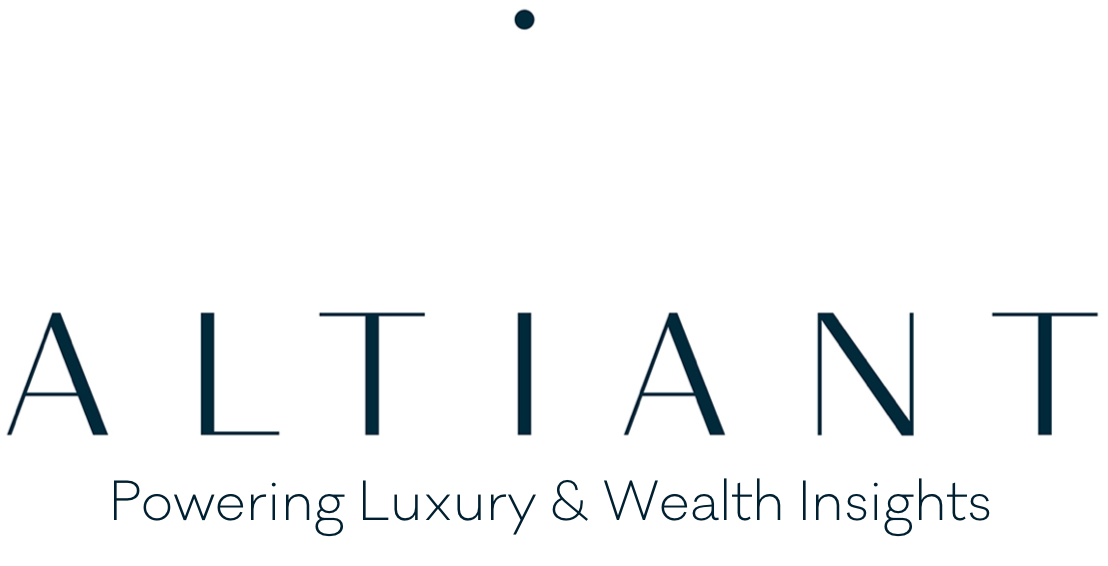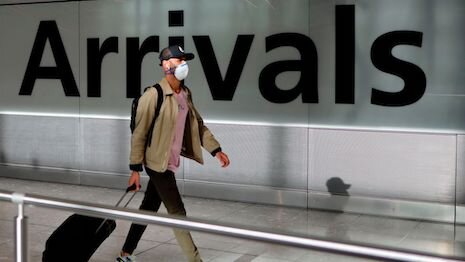By Nora Howe
Almost half of the adult population in the United States has received at least one dose of the COVID-19 vaccine. Image credit: U.S. Center for Disease Control
As governments around the world continue rolling out vaccination strategies, luxury consumer sentiment toward COVID-19 is beginning to shift.
While there is still considerable uncertainty regarding the global pandemic, luxury market researcher Altiant compiled findings from its Luxury Consumer Sentiment and COVID-19 survey to get a better understanding of consumer perceptions. According to the report, French luxury consumers are showing a considerable amount of skepticism toward vaccinations, compared to their U.S., U.K. and China counterparts.
“In terms of moving back towards normality, luxury brands can have some grounds for optimism,” said Chris Wisson, knowledge director at Altiant, United Kingom. “Many wealthy individuals are feeling more positive about the future and the resumption of activities such as dining out and traveling.
“However, it is clear that caution is still prevalent for many and that this return to normality is likely to be gradual over the coming months.”
The updated research reports on data collection from 463 luxury buying, highly affluent individuals in the United States, China, France and the United Kingdom between April 28 and May 9. Of the total sample, 53 percent were under the age of 45 and the gender ratio was 38 to 62, male to female.
Key takeaways
Data for the United States and United Kingdom followed a similar pattern. More than half of wealthy Americans, 57 percent, thought the worst had passed in a commercial sense, while four in 10 British respondents felt this way.
There has been a shift in optimism in the U.K., with a near-threefold increase in those thinking the worst has passed between early-June 2020 and late-April 2021.
Chinese respondents showed comparatively little variance during the study period, but the share of those thinking the worst has passed moved marginally upwards again to 61 percent.
Sentiment among affluent French individuals is considerably more conservative, with only a marginal increase, 21 percent, in those thinking the worst has passed between June 2020 and May 2021. More than half, 57 percent, think that the worst commercial impacts are yet to come.
Status and attitudes towards Coronavirus vaccines. Image credit: Altiant
The majority of this pessimism appears to have shifted to uncertainty about how effectively France is coping with the pandemic, permeating related factors such as vaccine rollout and efficacy.
France’s slow vaccine rollout is reflected in Altiant’s survey sample, as only a quarter have had one or both shots, while a further 27 percent are waiting willingly for their first.
Conflicting reports about the safety and efficacy of different vaccines appears to have had an impact on French respondents, with 20 percent unsure about getting a vaccine, while a quarter, 24 percent, say that they are currently not planning to get one.
At this point, most people are wondering when things will go back to normal. Altiant asked its respondents the same question, and the data shows a derived calculation to estimate the median time expected by the respondents.
While 57 percent of Chinese respondents think that normality has already returned, around half of the respondents in the United States, United Kingdom and France think it will take at least six more months for this to happen. Only 7 percent of the wealthy Chinese think that it will take longer than six months for normality to return.
As travel restrictions begin lifting, less than 25 percent of U.S., U.K and French respondents are somewhat or very concerned about staying in hotels.
When it comes to flying, more than 33 percent of U.S. and French respondents and 50 percent of U.K. respondents said they have concerns. These reservations could lead to more domestic or regional travel where air travel is not necessary.
Despite their widespread reluctance to be vaccinated or carry a COVID-19 vaccine passport, French respondents showed relatively little concern for flying and staying in hotels. Image credit: Image credit: Walpole
Concern in China appears to be slightly lower, with 12 percent of respondents saying they are concerned about flying. According to Altiant, affluent Chinese individuals are the most likely to be neutral about flying and staying in hotels, suggesting that they are likely to remain cautious despite their improving domestic situation.
Luxury brand response
Altiant found that online retailers such as Amazon, food delivery services such as Blue Apron and Hello Fresh and home streaming services were the most cited brands in its survey, reflecting that many consumers have spent a considerable amount of time at home since the start of the pandemic.
Throughout 2020, and specifically in response to the COVID-19 pandemic, U.S. retailer Saks Fifth Avenue implemented strategies that successfully combined the in-store experience with digital developments, placing a significant focus on customer personalization and ease and, ultimately, creating new practices for the digital era and mobilizing product presentation (see story).
In addition to harnessing impactful charitable partnerships and campaigns to combat the global crisis, the department store instituted new services to reach their consumers. When stores and restaurants shut down, L’Avenue, a popular French restaurant at Saks’ Manhattan store, offered do-it-yourself meal kits, cocktails and Pierre Hermé desserts for New York pickup, as well as delivery to the Hamptons (see story).
When nearly all non-essential businesses shut down around the world one year ago, digitization became of the utmost importance. British automaker Bentley Motors introduced a virtual visualization program, aiming to make it easier for customers to remotely work with retailers to fulfill personal commissioning requirements.
The digital application allows customers to view images of hide, veneer and stitching options tailored to their preferences, and ultimately allows for unique vehicle configuration. In collaboration with Bentley’s Mulliner designers, customers are guided through the process and receive feedback as part of the on-screen experience (see story).
“The uneven response to some of the questions shows how luxury brands should not see the COVID-19 recovery as a one-size-fits-all approach, but rather needs to be carefully curated to different countries and consumer groups,” Mr. Wisson said. “With this in mind, luxury brands should certainly take stock of the past 18 months on all fronts, but especially on their digital transformation and their customer experience.
“To the question related to the brands that made a difference during COVID-19, luxury consumers were referring to the way their favorite brands reached out to them via text messages to offer distance selling and other services.”



